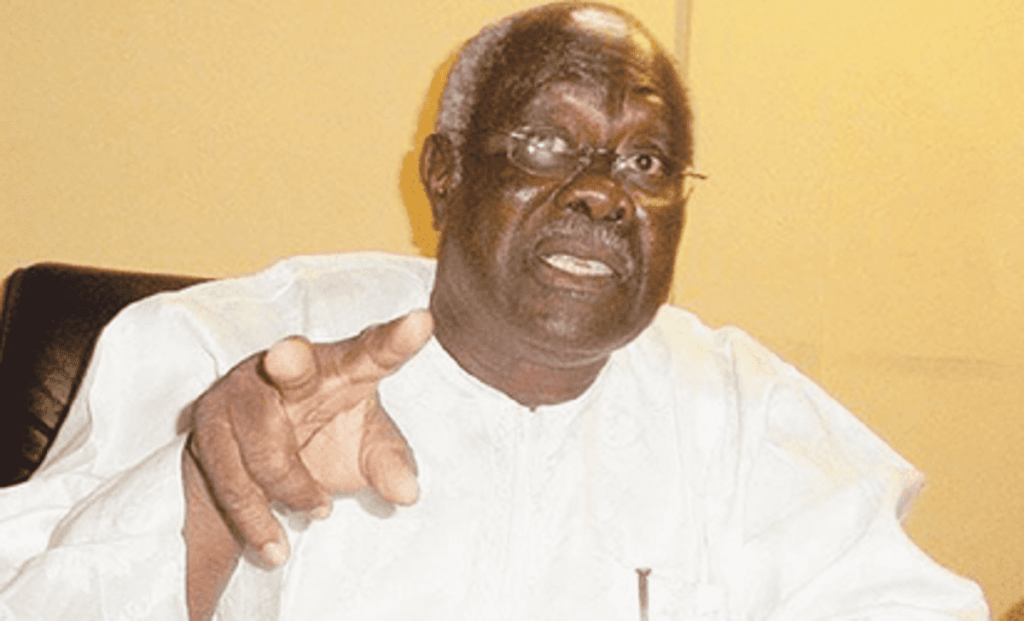- Bode George attributes PDP’s election loss to failure to uphold constitutional principles and internal disunity.
- He expresses hope for a favorable Supreme Court verdict but stresses the importance of unity and reconciliation within the party.
In the aftermath of the February 25th presidential election in Nigeria, Chief Bode George, a prominent figure within the Peoples Democratic Party (PDP) and former military governor of Ondo State, has attributed the party’s defeat to its failure to uphold its constitutional principles and a lack of unity among its members.
The election, which saw Bola Ahmed Tinubu of the All Progressives Congress (APC) declared as the winner by the Independent National Electoral Commission (INEC), witnessed a legal challenge from the PDP’s presidential candidate, Atiku Abubakar, who sought to overturn the outcome. However, Atiku’s efforts were unsuccessful at the presidential elections petitions tribunal, and he has since lodged an appeal with the Supreme Court.
In a candid assessment, Bode George expressed optimism that the Supreme Court might favour Atiku and the PDP. He emphasized the importance of unity and reconciliation within the party, irrespective of the legal verdict.
He stated, “I am still hopeful that we will win as we head to the Supreme Court, but if a decision is made, we must be prepared to come down state by state to resolve the crisis created before the elections. We can disagree, but we must not be disagreeable.”
The veteran PDP leader pointed out that the lack of unity within the party was a significant contributing factor to its electoral setback. He also raised concerns about alleged manipulation during the election, which, he argued, was made easier due to the internal divisions within the PDP.
George did not mince words when he accused the Independent National Electoral Commission (INEC) chairman, Professor Mahmoud Yakubu, of manipulating the election results using manual compilation, despite having initially promised to use the electronic system. This unexpected shift, according to George, was deeply troubling.
He stated, “The real postmortem analysis has to be done behind closed doors and not for public hearing. However, everybody now knows there’s no oneness in our party. It was a divided party so that the opposition could manipulate it. It’s not a matter of discipline or indiscipline; it is well stated in the party’s constitution. We deviated from it and were put straight down; they gave us an uppercut.”
George concluded with a thought-provoking reflection: “Imagine if the party were a solid rock, nobody would ‘cheat’ us.”
As the PDP awaits the Supreme Court’s decision, the focus on unity, reconciliation, and adherence to the party’s constitution becomes even more critical for its future success in Nigerian politics.

